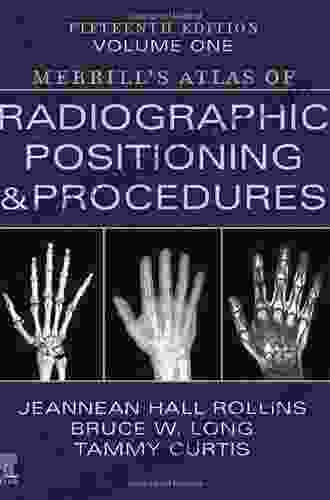Clinical Forensic Psychology: Introductory Perspectives on Offending

Clinical forensic psychology is a specialized field of psychology that applies psychological principles and techniques to the assessment, treatment, and management of offenders. Forensic psychologists work in a variety of settings, including prisons, jails, courthouses, and private practice. They provide a range of services, including:
- Assessing offenders to determine their risk of violence or recidivism
- Providing treatment to offenders to address their criminogenic needs
- Consulting with law enforcement and other criminal justice professionals on forensic-related matters
- Testifying in court on behalf of offenders or victims
History of Clinical Forensic Psychology
The field of clinical forensic psychology has its roots in the late 19th and early 20th centuries. During this time, psychologists began to apply their knowledge of human behavior to the study of crime and criminal behavior. One of the pioneers of clinical forensic psychology was William Healy, who founded the Chicago Juvenile Psychopathic Institute in 1899. Healy and his colleagues conducted groundbreaking research on the psychological factors that contribute to juvenile delinquency.
5 out of 5
| Language | : | English |
| File size | : | 1501 KB |
| Text-to-Speech | : | Enabled |
| Screen Reader | : | Supported |
| Enhanced typesetting | : | Enabled |
| Word Wise | : | Enabled |
| Print length | : | 992 pages |
In the years since Healy's time, the field of clinical forensic psychology has continued to grow and develop. Today, clinical forensic psychologists are employed in a wide range of settings and provide a variety of services to offenders, victims, and the criminal justice system.
Assessment of Offenders
One of the most important roles of clinical forensic psychologists is to assess offenders. This involves conducting a thorough evaluation of the offender's psychological, social, and criminal history. The goal of the assessment is to determine the offender's risk of violence or recidivism, as well as to identify any criminogenic needs that may be amenable to treatment.
There are a number of different assessment tools that clinical forensic psychologists may use to assess offenders. These tools include:
- Clinical interviews
- Psychological testing
- Risk assessment instruments
- Structured interviews
The type of assessment tool that is used will depend on the specific needs of the case.
Treatment of Offenders
Once an offender has been assessed, the clinical forensic psychologist may recommend treatment to address the offender's criminogenic needs. Criminogenic needs are those factors that have been shown to increase the likelihood of an offender reoffending. These factors may include:
- Antisocial attitudes and beliefs
- Poor problem-solving skills
- Lack of empathy
- History of violence
- Substance abuse
- Mental illness
There are a number of different treatment programs that may be used to address criminogenic needs. These programs may include:
- Cognitive-behavioral therapy
- Dialectical behavior therapy
- Motivational interviewing
- Skills training programs
- Pharmacological treatment
The type of treatment program that is used will depend on the specific needs of the offender.
Role of Forensic Psychologists in the Criminal Justice System
Clinical forensic psychologists play a variety of roles within the criminal justice system. These roles include:
- Providing expert testimony in court
- Consulting with law enforcement and other criminal justice professionals
- Developing and implementing treatment programs for offenders
- Conducting research on crime and criminal behavior
Forensic psychologists can provide valuable insights into the psychological factors that contribute to crime and criminal behavior. They can also help to develop and implement effective treatment programs for offenders.
Ethical Considerations in Clinical Forensic Psychology
Clinical forensic psychologists must adhere to a number of ethical guidelines when working with offenders. These guidelines include:
- The duty to be competent
- The duty to do no harm
- The duty to respect the rights of offenders
- The duty to maintain confidentiality
Clinical forensic psychologists must also be aware of the potential for conflicts of interest when working with offenders. For example, a forensic psychologist may be asked to assess an offender who is also a client of the psychologist's private practice. In such cases, the psychologist must take steps to avoid any conflicts of interest.
Clinical forensic psychology is a challenging but rewarding field. Clinical forensic psychologists play a vital role in the criminal justice system, providing assessment, treatment, and consultation services to offenders, victims, and criminal justice professionals. They also conduct research on crime and criminal behavior, and they develop and implement effective treatment programs for offenders.
5 out of 5
| Language | : | English |
| File size | : | 1501 KB |
| Text-to-Speech | : | Enabled |
| Screen Reader | : | Supported |
| Enhanced typesetting | : | Enabled |
| Word Wise | : | Enabled |
| Print length | : | 992 pages |
Do you want to contribute by writing guest posts on this blog?
Please contact us and send us a resume of previous articles that you have written.
 Book
Book Novel
Novel Page
Page Chapter
Chapter Text
Text Story
Story Genre
Genre Reader
Reader Library
Library Paperback
Paperback E-book
E-book Magazine
Magazine Newspaper
Newspaper Paragraph
Paragraph Sentence
Sentence Bookmark
Bookmark Shelf
Shelf Glossary
Glossary Bibliography
Bibliography Foreword
Foreword Preface
Preface Synopsis
Synopsis Annotation
Annotation Footnote
Footnote Manuscript
Manuscript Scroll
Scroll Codex
Codex Tome
Tome Bestseller
Bestseller Classics
Classics Library card
Library card Narrative
Narrative Biography
Biography Autobiography
Autobiography Memoir
Memoir Reference
Reference Encyclopedia
Encyclopedia Bruce Blinzler
Bruce Blinzler Nancy Blair
Nancy Blair Fabrizio Benedetti
Fabrizio Benedetti Camellia Yang
Camellia Yang Catherine Chea
Catherine Chea C W Leadbeater
C W Leadbeater Carson Wyatt
Carson Wyatt Bruce T Marshall
Bruce T Marshall Daniel J Kloeckener
Daniel J Kloeckener Mitch Stokes
Mitch Stokes Rashida Coleman Hale
Rashida Coleman Hale C N Mindham
C N Mindham Hans Wolfgang Spiess
Hans Wolfgang Spiess Casey Lyall
Casey Lyall Catherine Armitage
Catherine Armitage C Wayne Mcilwraith
C Wayne Mcilwraith Camille Deangelis
Camille Deangelis Bruce Hensler
Bruce Hensler Annie Kagan
Annie Kagan Janet Wasko
Janet Wasko
Light bulbAdvertise smarter! Our strategic ad space ensures maximum exposure. Reserve your spot today!

 Jorge Luis BorgesThe Collectors Society Encyclopedia: Unveiling the Treasures of Collecting
Jorge Luis BorgesThe Collectors Society Encyclopedia: Unveiling the Treasures of Collecting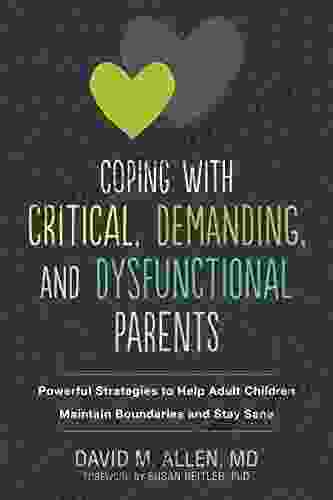
 Edison MitchellPowerful Strategies To Help Adult Children Maintain Boundaries And Stay Sane
Edison MitchellPowerful Strategies To Help Adult Children Maintain Boundaries And Stay Sane Yasunari KawabataFollow ·6.1k
Yasunari KawabataFollow ·6.1k Corey GreenFollow ·4.3k
Corey GreenFollow ·4.3k Carson BlairFollow ·5.9k
Carson BlairFollow ·5.9k Gavin MitchellFollow ·17.2k
Gavin MitchellFollow ·17.2k Pablo NerudaFollow ·10.5k
Pablo NerudaFollow ·10.5k Chris ColemanFollow ·11.7k
Chris ColemanFollow ·11.7k Alex FosterFollow ·4k
Alex FosterFollow ·4k Rick NelsonFollow ·11.3k
Rick NelsonFollow ·11.3k

 Shawn Reed
Shawn ReedEmbark on a Transformative Journey: Discover Ritual...
Delve into the Enigmatic World of...
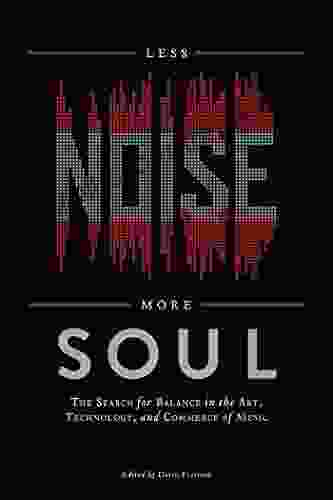
 Connor Mitchell
Connor MitchellUnleash Your Soul: A Journey to Less Noise, More Soul
Embrace the Power of Silence...
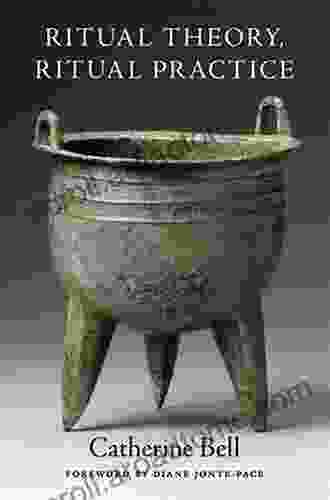
 Derek Cook
Derek CookRitual Theory, Ritual Practice: Unlocking the Secrets of...
Rituals have been an...

 Evan Hayes
Evan HayesStop the Itch: Simple Steps to Lasting Relief
Itching, an...

 Herman Mitchell
Herman MitchellThe Ultimate Premarital Guide: Your Essential Wedding...
Congratulations on your engagement! This is...
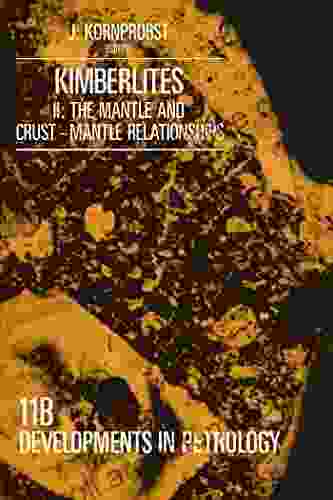
 DeShawn Powell
DeShawn PowellUnlocking the Enigma of the Mantle: A Deep Dive into "The...
Our planet,...
5 out of 5
| Language | : | English |
| File size | : | 1501 KB |
| Text-to-Speech | : | Enabled |
| Screen Reader | : | Supported |
| Enhanced typesetting | : | Enabled |
| Word Wise | : | Enabled |
| Print length | : | 992 pages |



